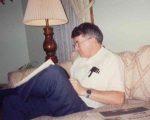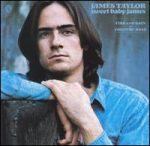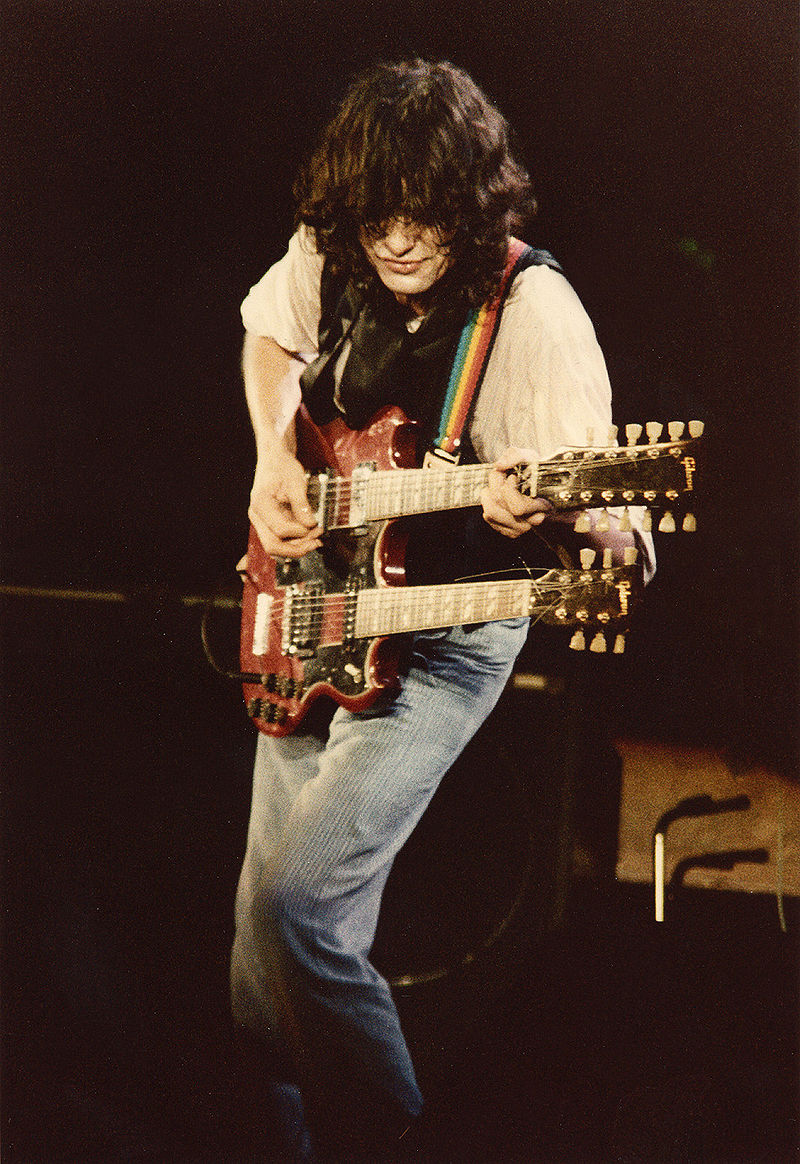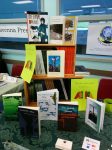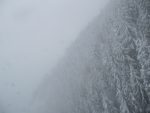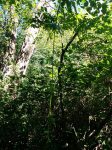Tuesday when I was running in the bright sunshine, foolishly wearing the green woolen running shirt (it became too warm!), I thought of home. It’s a recurring thought lately as I’ve been re-watching one of my favorite television shows, The West Wing. I was born and raised in the United States–born in Kentucky to a line of farmers from Grayson County (Dad’s side), mixed with city folk from Louisville, and Appalachian hill people on my mother’s side. Dad’s ancestors came over from Norway and the UK, and Mom’s from Scotland and Ireland. Louisville, being the gateway to the South, was a place I remember well, along with visiting relatives further south in eastern Kentucky, Tennessee, and Alabama. The South, then, is a place I tend to think of as home. I grew up in southern Indiana for the most part before my teenage years spent in the Chicago area. No matter where I lived, suburban or rural, I am always thankful that my upbringing was rich. My parents raised me, and my siblings, with lessons on love, tolerance, and good work ethics. And from my dad, especially–which he had inherited from his grandmother–my great grandmother CeCe, I developed the love of the news.
Watching The West Wing is very nostalgic for me. I was a typical American growing up. Sometimes we did without; sometimes we had enough; sometimes we had more than enough. My parents were comfortable but didn’t spent their money on frivolous things. They started out poor and worked their way up to what we might consider upper-middle class. I was always fascinated by politics, the news, and my country’s leadership. I was highly interested in the process of democracy, regardless of whether I agreed with the current leader’s ideals and direction. I also realized, the older I got, the downsides of the country: religious intolerance (both sides), excessive resource consumption and grabs, and brutal violence that happens with fear, racism, intolerance, and other hateful attitudes, including those that destroy environments.
Having a well-balanced upbringing meant that I was taught different ideals and allowed to choose my own beliefs. I admit to leaning heavily democratically all my life, similar to my dad. We both went to see Jimmy Carter speak at Purdue University once–where I got my BA and he his masters. It was a unifying experience between Dad and me. If you read this blog, you know that often when I run I kind of get motivated by different factors: music, nature, memories of my dad. He’s really the first close person, other than grandparents, in my life who has died. Dad was a center to me, and I miss him. He was bigger than life in many ways.
When I think of home, I think of the South, where our last times were spent with extended family when Dad was alive and still healthy, or I think of the United States in particular, as all the things my father and mother taught me were shaped by the politics, the soul, and the heart of the country I’d lived in all my life. Home is where the heart is, right? Well, I now think of Canada as my home, but only in the sense that is where I go at the end of the day. It is and will continue to be a growing memory of this portion of my life I am spending with my husband, our cats, and running in the unparalleled beauty of British Columbia.
They say Canada and the United States are not much different, but I do feel the disconnect. Perhaps it’s more that the Midwest and South have truly historic places, traditions, culture, art, and food that is not seen up here, as Vancouver was settled much later than my first home. The city is still struggling for definition. The first peoples here lost their own territories, by and large, to what is now the second most unaffordable place to live in the world. While still a beautiful city in ways, the coastline is built up and played in by the rich. The once beauty of this place–aboriginal art and culture, the more pristine coastal areas, which once had salmon so thick you could walk across rivers they say, and stately groves of conifers–have not disappeared entirely but have been replaced by either the very wealthy in certain neighborhoods or the homeless of the Downtown East Side.
Anyway, there is a difference between where I was raised and where I am now, for sure, and I’ve thought all week on these differences between two neighboring countries. It could also be that much of my memory is from the past–you know, before global borders disappeared or loosened via the internet, social media, and world-wide networks. These things came later, after my childhood, so a lot of what I remember is gone or out of practice: chickens before hormones, beef before antibiotics (Canada still is much healthier in these regards), visiting people in person, more closely regionalized families–where big get-togethers were common, and, last but not least, the enjoyment of nature. My youth happened during a growing age of environmentalism–so I never lost that. My dad and mom had grown up outdoorsy people, so we often spent vacations out camping or fishing or canoeing or rafting or riding horses in the lonely desert.
Anyway, I feel this is getting rather rambly, but watching The West Wing brings back the emotions, the nostalgia, the innate feel of things when I was growing up. I’ve never even been to the Whitehouse but was constantly immersed in the news, just like my dad and just like my great-grandmother CeCe. The interior design of the west wing is much like my grandmother’s and her sisters’ houses; they were big into antiques. There’s even an opening credits scene where Martin Sheen looks nearly identical to my father. The resemblance is so uncanny I look for it each time a new episode starts. It’s this one below. Everything from the decor of the office to the expression on Mr. Sheen’s face to the way that he, like my dad, dressed or crossed legs like that or read a lot is familiar. I mean, that is my dad I joked recently on a more personal note to family.
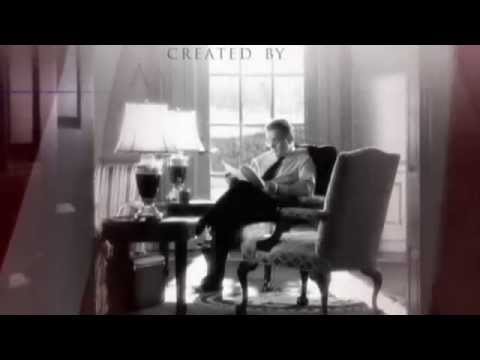
My dad died almost exactly three months after I got my permanent residency to live in Canada. I was already married to my (Canadian) husband, but had also gone “home” to help take care of Dad briefly on and off in both 2007 and 2008 while I worked on my residency application. I wanted to spend time with Dad. I know this is a long post, but this is what running does to me, what watching nostalgia does to me.
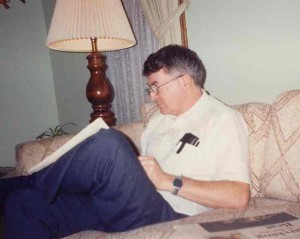
Dad suffered from Parkinsons disease. He had this disease for nearly 30 years of his life, perhaps more, but I did not really see it outwardly affecting him until his dad died in 2001. We all met in Louisville for Grandfather Sands’ funeral–sometimes the best reunions happening when someone dies. I had a cold, and Dad drove me over to a drugstore the night before the funeral. It was then that I saw his feet shuffling when he walked, his face not as full of expression, his demeanor down. Oh, my dad was greatly distraught. He had always been so fond of his family, and when his elders got old, he was the first to take care of them, moving both my grandmother and his aunt into Dad and Mom’s home to take care of them before they went to nursing homes. Dad traveled a lot back to his home to take care of, or just spend time with, our relatives and of course us (his children, when we moved away). But I could distinguish between sadness that the last of his parents or grandparents had died and the onset of recognizable Parkinsons.
Between 2001 and 2009, Dad’s disease went downhill each year. In the mid-2000s they sold their big house that they’d lived in since the 1980s because Dad couldn’t climb stairs anymore. They moved into a smaller, one-story condo. The house they sold was a big gray-blue house surrounded by tall oak trees, on the outskirts of town, nestled near woods and a creek on about an acre or two of land. The house was not remembered for the material reasons as much as it a place of laughter and love. Mom and Dad had built their home on the premise of a place to feel safe and be with family and friends. They were so open and social that at any given time of the day or night you might find about ten people gathered in the living room playing board games or gathered out on their wonderful peaceful deck overlooking the woods–wrapped in conversation, some of it deep and philosophical. We weren’t always deep. More often we were silly. Laughter rose above the trees at the most insignificant joke. We loved to roast each other on mistakes that had turned into traditional comedic memory, like the time Dad spilled hundreds of toothpicks in a Chinese restaurant or the time my brother William, in grade school, had forgotten to zip up his fly and laughed so hard about it in the school bathroom that he literally rolled on the floor laughing until he accidentally hit his head on something and it started bleeding. We still joke that if that house ever goes up for sale, we’ll pool our money and buy it. When us kids got older (there were four of us), the scene might become cigarette-filled or laced with wine and beer bottles. And then came the grandkids: loud, happy children racing around, screaming with joy. I happen to have an interview with some of these people–my daughter Kristal and her friend for years Ashley, who have been hiking peaks in California as well as my niece Katie, who is selling most her possessions to travel in an airstream; they have both grown up to share these same loves of the wilderness and getting out there. Like me. Chips off the old block of my parents (their grandparents) we are.
Anyway, the move to the condo also marked a steeper decline as Dad got to the point he could no longer walk for long or even stay awake for long. This is a person who never smoked, hardly drank at all (a polite cocktail once in a blue moon in the company of peers as he traveled around the world on business trips: Ireland, Taiwan, China), and kept a healthy diet. He played basketball and baseball, he hiked, he liked to get out into nature and climb the ruggedest of trails. He had also developed type 2 diabetes along with his Parkinsons–it runs in the family. In 2007 I spent a couple months at the condo where Dad had become mostly immobile. He had a blue chair he would sit in while watching television. He occasionally had good days where he could sit in the car for a little while if one of us drove, but he tired so easily.
His mind (he had a genius IQ of over 170) was also going, and possibly the hardest thing is that he knew it. Once, when he and Mom got back from a trip to the specialist, he sat down to tell me that he hated the tests they were giving him. They were simple math tests that Dad got so nervous about, he said that he felt that he did poorly on them. Dad had once been a teacher of high school mathematics (before becoming a civil engineer). He told me, “Why, I wanted to tell that doctor I could explain the Fibonacci Sequence but had trouble with memory otherwise.” But he did have better days. Once, he came back to the “sun room,” which was my room when I was there. I was on my computer back there, and Dad said he had heard of something called Google Earth. Could I show it to him? He pulled up a hard desk chair to sit next to me, and despite his body being so tired and sore all the time, and despite his memory going so fast, he just had a good few moments and remembered the addresses of all the places he had lived, taught, and worked in Louisville, Kentucky. We looked them up, including the street views, and I could just tell that Dad thought this was the most amazing piece of technology he had ever seen. I saved those addresses in my Google so that I could never forget where Dad lived when he was young.
I stayed at the condo for a few months again in 2008. This time I returned back to Canada when my residency was finalized; it was the weekend after voting for Obama, which turned Indiana blue the first time since LBJ in 1964. By now Dad had been transitioned to the nursing home. Mom and I went twice a day to feed him and just spend time with him. He no longer was functional as far as feeding himself and so on. He couldn’t sit up for long. Sometimes he would smile big when seeing us walk in the door, but toward the end his eyes would hardly look up. I’ll never forget the first time I saw Dad in the nursing home. It was in July 2008, and he’d been living there since January. When I walked in, I had just arrived from Vancouver, and he looked so frail and tiny in the twin bed he slept in. He looked at me and smiled widely and raised his arms as far as he could and said, “Mary! My daughter!” I was floored by his enthusiasm. It was not often that Dad had the energy to do that.
Before I went back to Canada, I knew I’d never see Dad alive again after this trip, so I said my good byes then. It was very hard. I tried to explain it to someone once, and they properly understood that watching someone die like that is a devastating experience day in and day out. Watching someone so full of life, so energetic and healthy, so intelligent and wise–decline like that, to the point they are always in pain, cannot delineate dream vs. reality, and have to rely on underpaid, too-busy staff to to help with the most fundamental of human endeavors–well it is one of the harshest parts of my life, and it wasn’t even my life. It was his. On the occasional “with it” days back at the nursing home I might have been able to have a two-minute conversation with him that he would smile at. When I told him that we had our first black president, he smiled but said if he could have voted, he would have voted for Hilary Clinton, who he liked just a tad better. One night, when one of my nieces got married, I video-taped the thing and took it over to Dad, along with a piece of German chocolate cake, his favorite. He began to cry when he saw the tape, but a few minutes later was too tired to watch more.
I moved back to Canada in November of 2008, getting landed status upon arriving at the airport. A few times I got to talk with Dad on the phone, but he had trouble hearing me. Three months later I was once again at the Vancouver airport, at the news of his sudden decline. It was there, waiting on a flight home, when my sister called to tell me Dad had passed away. My trip took me to San Francisco to Washington Dulles to home, a weird round-about flight that went further than I had to go but was the only way I’d get to leave that night. I did not sleep as I watched the sun both set and rise out of the plane windows.
The time back home was bittersweet, but as with other funerals, it was a grand reunion full of intermittent laughter and tears. Sharing our epic memory of times with Dad made a few of us forge stronger bonds, realizing just what the loss of our patriarch had meant to us. For me, personally, the time was rough. I had only first gotten a visitor’s visa in Canada in 2006, though had traveled here often. Coming back to Canada later, I learned that there was a sharp transition between my old home and my new home. In fact, my old home represented times my dad was alive, and my new home represented times he was not. Then again, my new home represents also my husband, who is my best friend and life-long partner! It was nice that my dad got to know him too–the two best men in my life, meeting and sharing thoughts.
Fortunately, my mother is a strong woman, and we’ve carried on great reunions (she even came with us to raft on a grizzly tour last summer on the Atnarko River to the Great Bear Rainforest). I appreciate my current home, but get nostalgic for my old home too.
I’m publishing a book of environmental essays next spring, by Jim Schaefer, called The Two Houses of Oikos. Jim is a biology professor at Trent University. He named his book thus because the Greek root of house, oikos, is also the common linguistic root for ecology and economy. Ecology and economy share more bonds that many people know. Each relies on the other. Each also defines our home. This is true whether home is a house you grew up in, your current home, your country, or your planet.
It’s with this idea of home, whether one or many that I have known in my life, that I let my thoughts be flooded for wonderful nostalgia of my past home, with grand appreciation for my current home–both the physical space I share with my husband and our cats to our backyard rainforest to this planet we are designated to and must take care of. I’m also enthused with people I’ve been meeting, the others who share the work to save our planet–the creativity that flourishes, the politics that lift up, the soul of good people who strive to make life and our homes, from the healthy economy of family to the push for healthy ecology.
I think I’m going to end this long post with the thought that running makes me feel very alive and thoughtful. Today’s run was faster, though shorter. I felt like a real runner bounding down the road. The thoughts during my runs tie in with my observances of the many homes, whether old ones or new ones. The bottom line is that the planet is our home, so we are in this together and must continue to ensure its health.
Previous comment: Thank you, Mary. That’s a really lovely and touching piece. -Paul Collins

